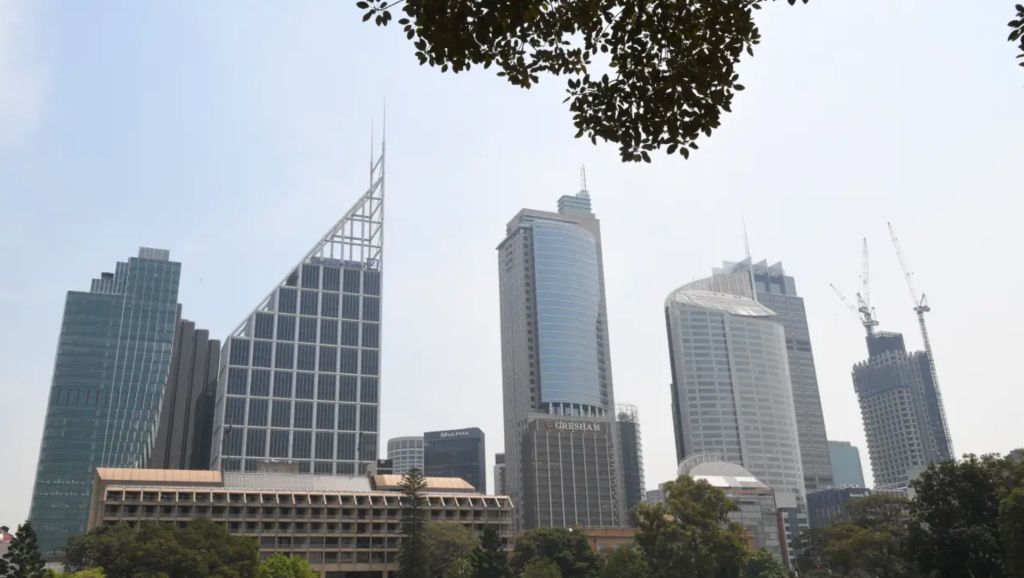
Can property stocks rebound after the May rout?
Australia’s listed property stocks have fallen 17 per cent so far this year, with much of the sell-off taking place in May after the Reserve Bank of Australia raised the official cash rate earlier and higher than many had expected.
The May sell-off has sent the S&P/ASX A-REIT 200, the sector’s main index, tumbling faster than the general equities index which is down around 4 per cent, year-to-date.
The top property stocks include some of the country’s best known landlords, such as Westfield operator Scentre, global warehouse player Goodman, fund manager Charter Hall, office landlord Dexus and residential developer Mirvac.
The sector was battered at the start of the year amid the surge in bond yields. As bond proxies, REIT prices typically slump as bond yields lift. The second hit came in May, with REITs down around 10 per cent this month so far as the market accounted for the impact of increased borrowing costs for the heavily leveraged sector.
But was that sell-off an over-reaction? According to Citi analysts, the sector may well have over-corrected. Their analysis of previous rate cycles shows REITs typically bouncing back within two months of the initial rate rise.
“While we acknowledge the headwinds from the rate hikes and a near-record expected rise in cash rates over the next two years, in the absence of any evidence of weakness in direct property markets, historical evidence suggests that the sector might have underperformed more than warranted,” the Citi team wrote this month.
Highly liquid, property stocks have underperformed the broader market by around 13 per cent so far this year. Yet in the direct market, demand is still holding up, according to Citi. Testament to the abiding appetite for real assets is the $2.1 billion acquisition less than a month ago by Charter Hall and GIC of Melbourne’s Southern Cross towers, the country’s biggest such office transaction.
Potential for a pullback
“We see potential for a pullback and see near-term upside to buy-rated names which have seen a PE [price-to-earnings] de-rate despite consensus earnings upgrades,” the Citi analysts wrote.
Among those stocks Citi earmarks for a rebound are industrial powerhouse Goodman, which this month upgraded its earnings growth forecast to 23 per cent, and Charter Hall, which has nearly $80 billion in funds under management and has previously flagged better-than-expected earnings growth this year.
SG Hiscock portfolio manager Grant Berry agrees May has been particularly challenging for equity markets and REITs after the first interest rate rise in more than a decade 10 years, along with increases overseas.
“Of more significance is the move in bond yields and, primarily, real bond yields,” Mr Berry told The Australian Financial Review.
While the nominal yields on 10-year bonds moved from 3.1 per cent to peak at 3.6 per cent this month before moderating, it is the rise in real yields from around 60 basis points to around 100 basis points that is weighing most on listed property.
“It is worth reflecting that at the start of this year real bond yields were slightly negative. Higher real bond yields should result in higher real return requirements and asset prices should adjust for this, particularly high multiple groups,” Mr Berry said.
“Having said that, we believe that the sell-off is providing some interesting opportunities.
“We have factored in higher real bond yields taking a ‘through the cycle’ approach for some time. This means that we have had a strong value bias and more cautious positioning, with a much more resilient portfolio through this period.
“Our portfolio is also significantly more biased to ‘built form’ assets than the sector, having leases more orientated towards rising inflation, with the portfolio well positioned through this changing investment climate.”
Some conventions are being turned on their head as inflation bites. Holding established real estate may be the better bet rather than pursuing development pipelines, averting the uncertainty of rising construction costs.
As well, long-term leases have typically been highly sought by property investors. But that may no longer be so, Mr Berry said.
“You don’t want to have a long-term lease with very low fixed increases because if inflation runs away, you haven’t got the ability to capture that,” he said.
“Shorter term leases are likely to become more popular as long as the rents are at market levels, and you can capture the increase.”
Get a weekly roundup of the latest news from Commercial Real Estate, delivered straight to your inbox!







